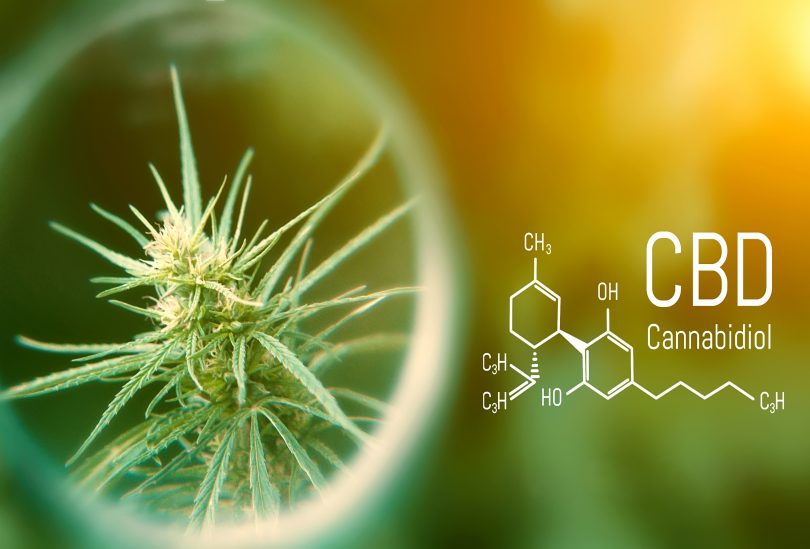While a fringe, alternative treatment option only a decade ago, today, CBD is everywhere you look – in wellness supplements, beauty and hygiene products, FDA-approved prescription medications, food and beverages, dental products, and even pillows, mattresses, and other random household goods.
As far as cannabinoids go, CBD, or cannabidiol) is the most widely accepted. Not only is there a growing body of clinical research to support its benefits, but it is non-intoxicating which makes it much more likely for laws to be passed in its favor – as is evidenced by the fact that CBD is federally legal in the US and many other countries, while THC still is not. But when it comes to CBD, what are some actual legitimate uses for this compound, and which ones are just marketing gimmicks? Let’s take a look at some of the real, science-backed benefits of CBD.
CBD is amazing, and so incredibly versatile. To learn more about this compound, and for exclusive deals on CBD flowers, as well as on Delta 8, Delta 10 THC, THCV, THC-O, THCP, HHC and even on legal Delta-9 THC! , make sure to subscribe to The CBD Flowers Weekly Newsletter, your hub for all things CBD-related.
What is CBD?
CBD, or cannabidiol, is the most prominent, non-intoxicating compound found in cannabis plants. When most people think of cannabis, they’re thinking about marijuana, which is the type so cannabis that is high in THC and associated with feelings of being “stoned”. Some types of cannabis, hemp for example, are high in CBD and contain only trace amounts of THC, meaning these plants can be considered non-intoxicating, by all accounts.
CBD is gaining popularity as a safe, non-toxic, non-addictive, natural treatment option for many different chronic and debilitating ailments; both mental and physical. Not only is CBD itself non-psychoactive, but when taken in combination with compounds that are, like tetrahydrocannabinol for instance, CBD can minimize the likelihood of negative side effects such as paranoia and anxiety that are occasionally associated with THC use.
The reason CBD (or any cannabinoid for that matter) works in the human body at all is because of the Endocannabinoid System (ECS) – a complex signaling system made up of numerous receptors, as well as some naturally produced endocannabinoids, that exists in the bodies of nearly all animals (except insects). Researchers have discovered two different endocannabinoids so far, 2-arachidonoylglycerol (2-AG) and anandamide (AEA), plus the two most studied receptors, CB1 and CB2. This quad makes up the majority of existing cannabis research.
As a whole, the ECS regulates numerous different functions and processes in our bodies and maintains internal balance and homeostasis. Many cannabinoids engage directly with the ECS receptors. Others, like CBD, have indirect connections by activating other receptors that will then interact with the endocannabinoid system. Specifically, CBD activates the TRVP1 receptors, which in turn activate receptors in the ECS and also function as ion channels.
CBD as an Anti-Inflammatory
One of the most common uses for CBD is to treat inflammation, which is the body’s process of fighting against pathogens and other hazards, such as infections, injuries, and toxins. When something damages your cells, your body releases chemicals that trigger a response from your immune system, thus causing inflammation.
The phrase “too much of a good thing” really applies in the case of inflammation. When this inflammatory response lingers after your body is done fighting the infection or whatever it is trying to overcome, this leaves your body in a constant state of stress and unrest. Chronic inflammation can have devastating effects on the tissues and organs and research indicates that it’s the root cause of many ailments including arthritis, contact dermatitis, acne, multiple sclerosis, and type 1 diabetes, asthma, and cancer.
Cannabidiol is becoming a very popular alternative for standard NSAID (Nonsteroidal anti-inflammatory drug) drugs like Aspirin. Long-term use of NSAIDs can lead to various health problems such as heartburn, stomach pain, ulcers, headaches, dizziness, and even damage to the liver and kidneys.
CBD to Manage Anxiety
Anxiety is another condition that’s been researched extensively to determine how well it responds to cannabis therapies. Cannabidiol targets cell receptors in the body and brain that regulate your mood. Many mood disorders, including anxiety and depression, have a few things in common, including a lack of naturally produced endocannabinoids.
Treating mood disorders with CBD is becoming more widespread is among the top-rated treatment options for young adults ages 25-40. According to a study conducted a couple of years ago, thirty-four percent of millennials prefer to manage their mental health with natural and holistic remedies, and 50 percent of millennials believe CBD oil is the best way to do this; and this number continues to grow.
The main reason cited was a fear of being prescribed a medication that is too potent for their level of symptoms. Because CBD doesn’t have the mind-numbing and other unwanted side effects of prescription drugs, nor is it psychoactive like THC, it can be used all day like any other medication or supplement.
CBD for Controlling Seizures
One of the first, medically-accepted, modern-day uses for CBD was to treat epilepsy. There are many studies out there researching its effectiveness. As a matter of fact, there is even an FDA-approved, cannabidiol-based medication, Epidiolex, that’s used to treat two rare and severe forms of childhood epilepsy, Lennox-Gastaut Syndrome (LGS) and Dravet Syndrome (DS).
Epidiolex is currently being prescribed in the United States, many countries in Europe, and Japan. Epilepsy medications can have some very serious side effects, and that’s why more natural alternatives are becoming the go-to way to treat children and younger adult patients who suffer from epilepsy.
CBD for Pain Management
Although not common, many patients turn to a CAM, or complementary alternative medicine approach, to manage chronic pain. CBD is at the top of the list for those looking for natural, yet effective, alternative remedies. Because inflammation is the root cause of so many conditions that cause chronic pain, it makes sense how CBD eliminates pain.
Numerous different studies have found that cannabinoids like CBD can help with chronic pain from multiple sclerosis, cancer, and neuropathy. CBD and CBD topicals help with pain — if you suffer from chronic pain, CBD oil may help, as well. Chronic pain can be the main source of a diminished quality of life — CBD may give you hope for getting pain-free, or at the very least, reduced pain, and anything is worth a try.
CBD for Skin Conditions
Studies have shown that CBD can provide relief for the symptoms of various skin disorders, such as eczema and allergic reactions. Reverting back to inflammation, we know that cannabidiol can be used internally inflammatory conditions, and now we also know that it does the same when applied topically.
Topical creams containing CBD have been shown to or greatly reduce and sometimes even completely eliminate itching and dryness in sufferers of eczema. The chemical ‘histamine’, which is largely responsible for the irritating itches we experience, has been shown to react well to topical cannabinoid therapy. One study found that in almost 59% of its participants, their dry and scaly skin significantly reduced with the regular use of a cannabinoid cream, which reduced itching and as a result lead to less sleep loss.
Final Thoughts on Cannabidiol Benefits
Simply put, cannabidiol is an incredible compound. It’s non-psychoactive, non-toxic, and non-addictive; and it can be used to treat dozens of different health conditions. The ones covered in this list are the most common uses for CBD, but it can be utilized for many other ailments as well. Do you use CBD? And if so, what do you use it for? Drop us a line in the comment section below!
Thank you for stopping by CBD TESTERS, your hub for all things cannabis-related. To learn more about weed, and for exclusive deals on flowers, vapes, edibles, topicals, and other products, make sure to subscribe to The CBD Flowers Weekly Newsletter.







